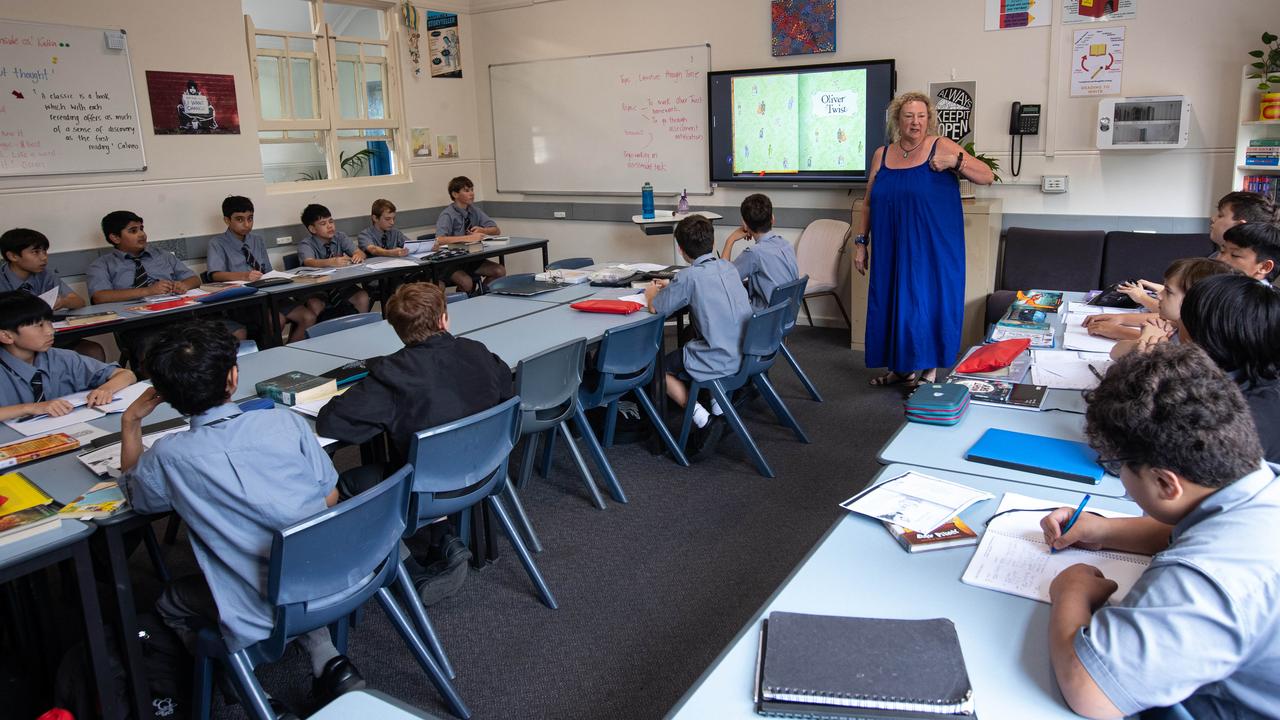The device that forced students to stop thinking about their phones
Any parent or teacher will tell you that mobile phones and learning don’t go well together. But what if they also don’t go well apart?

Any parent or teacher will tell you that mobile phones and learning don’t go well together.
But what if they also don’t go well apart?
This was the dilemma facing Ashfield Boys High School as it moved to implement the Minns government’s mobile phone ban last year.
It started when the P&C hired a “digital distraction expert” to help parents manage their kids’ use of phones at home.
Dr Kirsty Goodwin’s webinar for parents was so successful that the school then hired her to give another one for staff and another for students.
But the research she presented came with a Catch-22.

Even when a mobile phone was switched off it still caused “cognitive distraction” if it was in sight.
The figure cited was a reduction in the brain’s working memory of about 8 per cent as kids wondered what was happening on the phone.
The catch is that even if the phone was left out of sight – say in the student’s schoolbag or another room – it also reduced working memory, because they would still be wondering what they were missing out on.
And so the school and students came up with a novel solution – a locked mobile phone case at the front of the classroom so the students could see their imprisoned devices and know both that they were 100 per cent secure and 100 per cent off limits.
Each morning the phones would be confiscated and placed in the locker at the front of the home room, with the glass case clearly telling the students where they were and the lock clearly telling them they were out of reach.

Thus both the temptation to look at them and any anxiety about where they were was eliminated.
Principal Dwayne Hopwood, who also teaches Metacognition to Year 9 and 10 students, said he simply applied neuroscience to the problem and the boys were also onboard and understood the reasoning behind it.
“The boys co-designed the solution,” he told The Daily Telegraph.
“Much of the decision to adopt this solution was grounded in neuroscience.
“If a mobile phone is in sight – even if it’s turned off – it causes cognitive distraction and reduces working memory. If it’s in the next room it still reduces working memory.
“But if the phone is removed, the brain stops thinking about it because it can’t be had. The mobile phone lockers are about improving the boys’ concentration in class by removing the source of FOMO (fear of missing out) distraction.”
More Coverage
Originally published as The device that forced students to stop thinking about their phones





